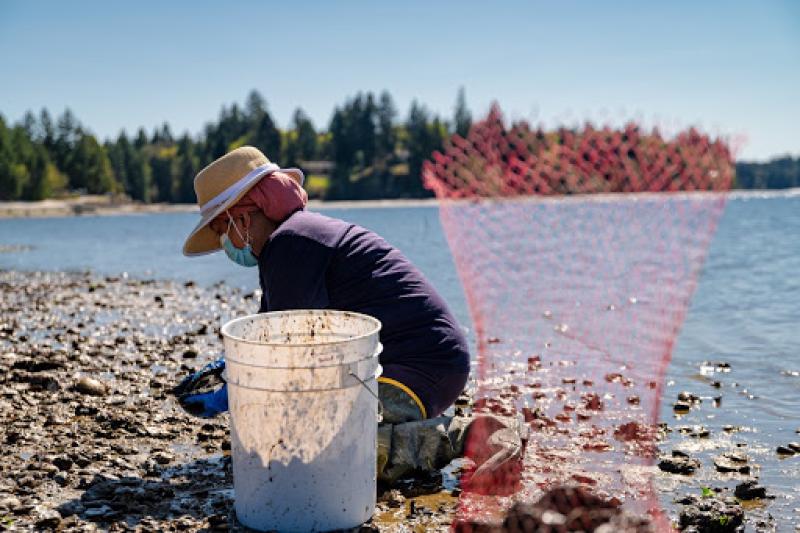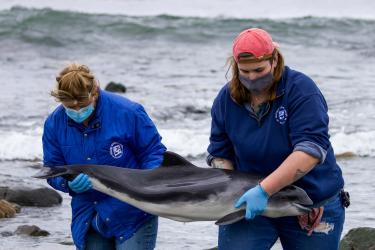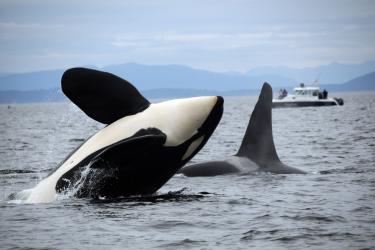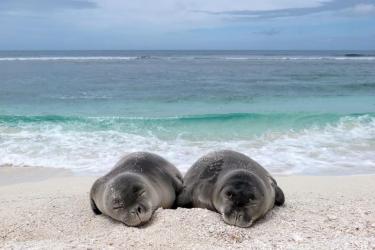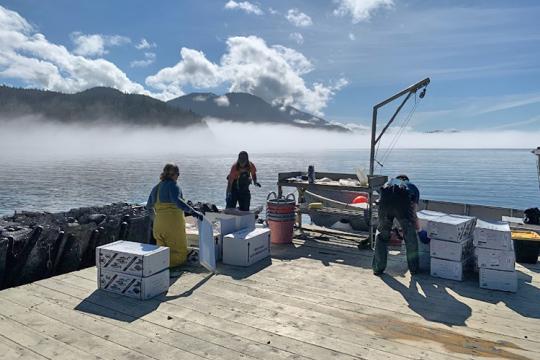A growing diversity of aquaculture producers is bringing knowledge of farming, farm practices, and food cultures from around the world to help meet our growing demand for seafood. Male managers and employees have traditionally dominated seafood harvesting around the nation. However, Totten Inlet and Skookum Inlet farm manager Aisha Prohim is challenging this stereotype as she enters her thirteenth year at Taylor Shellfish in Olympia, Washington.
Oysters and other shellfish are commonly thought of as delicacies served in white tablecloth restaurants, but the harvesting of these bivalves is anything but delicate. Harvesting at Taylor Shellfish can require long hours on boats or in the mud, picking and sorting shellfish to get consumers a tasty reliable product.
“I often get down and dirty harvesting in the mud with my crew, we work while many of you are still sleeping,” explains Aisha, whose work schedule is dictated by the tide. Taylor Shellfish has many different species and products to grow, maintain, and harvest, so Aisha has a variety in her day-to-day management. “I sometimes work the high tide because I have guys who will work at those times operating our work boats to either harvest, spread transplants, or help other departments, so there’s a lot of communication and management involved,” added Aisha. The shoreline shellfish harvest takes place at low tide, which changes time during the year. During the summer months she works during the day, but during the cold Pacific Northwest winter low tide is around 3 a.m.
Aisha actually started her shellfish career during these cold winter months. “When I first started, I had coworkers making bets to see how long I would last, because I started working for Taylor in November during the bad winter storm of 2008,” said Aisha. “It is a very hard job, especially for a petite female like me, I was covered in mud all the time and still am!”
Today, she is farm manager and has outlasted many of the coworkers that bet against her. Aisha points to the roots of her resilience coming from her journey to the United States as a Cambodian refugee during the Khmer Rouge. After initially living in Philadelphia, Aisha’s family settled in Olympia in 1996 after her freshman year in high school. “I push myself to succeed to prove that I am able and capable. Within the first year at Taylor I learned how to operate a boat, helped drive a flatbed, and after many years laboring alongside the other guys, I had the opportunity for professional growth and management.”
Coming from an agricultural background in Cambodia, farming has played a very important role for Aisha’s family. Not only does farming support Aisha’s career, her husband and sons also work for Taylor Shellfish. “I always tell people if you enjoy the outdoors and do not mind getting dirty, this is the job for you,” added Aisha. “We are like mail carriers, we work through all types of weather conditions to get you shellfish.”
Since entering the aquaculture industry she has seen the diversity and inclusion grow, but there are still people who are surprised to see a petite woman on a farm. “You can tell that they are surprised, but also impressed because I have a crew of 17 guys, and they all listen and respect me.” As more stakeholders run into Aisha on the farm and in the community, they start to challenge their views of traditional shellfish farmers. An aquaculture farmer is not a set gender or build, they are instead part of an inclusive group. They share a dedication to hard work in all types of conditions and a pride to supply healthy shellfish for people to enjoy.
